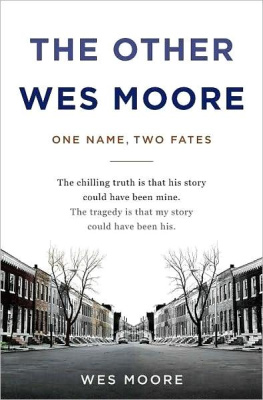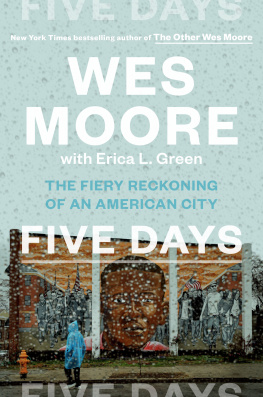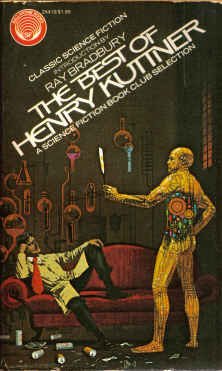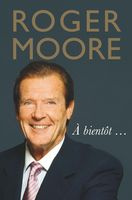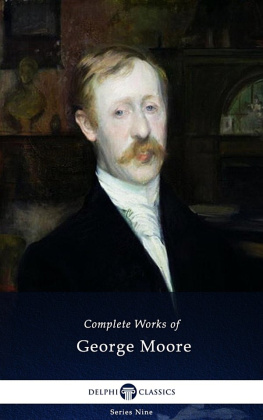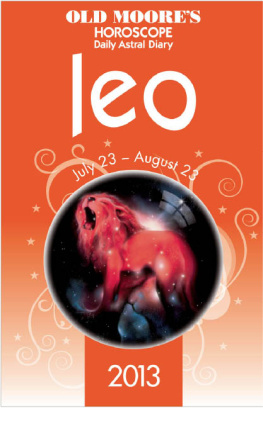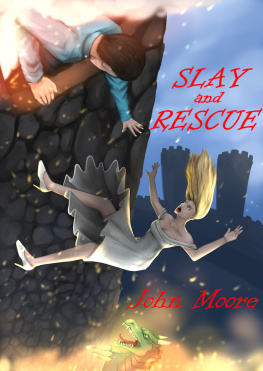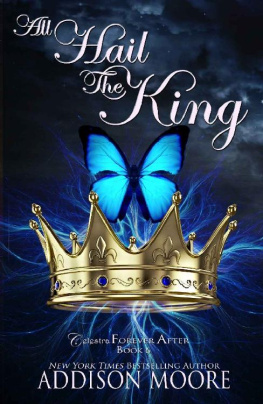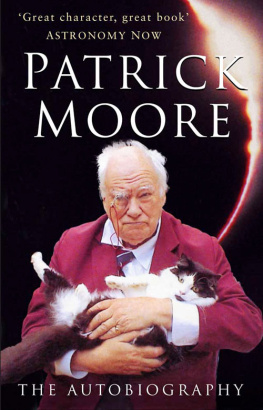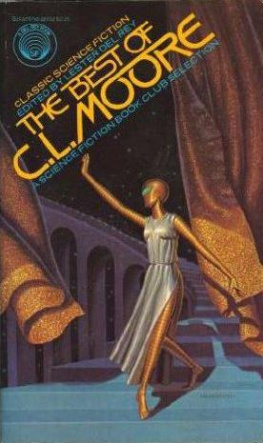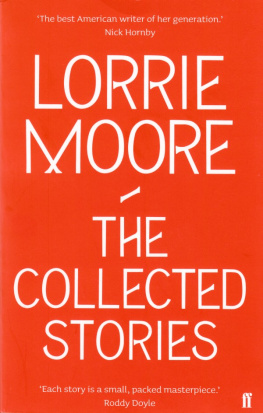Wes Moore - The Other Wes Moore: One Name, Two Fates
Here you can read online Wes Moore - The Other Wes Moore: One Name, Two Fates full text of the book (entire story) in english for free. Download pdf and epub, get meaning, cover and reviews about this ebook. year: 2011, publisher: Spiegel & Grau, genre: Non-fiction. Description of the work, (preface) as well as reviews are available. Best literature library LitArk.com created for fans of good reading and offers a wide selection of genres:
Romance novel
Science fiction
Adventure
Detective
Science
History
Home and family
Prose
Art
Politics
Computer
Non-fiction
Religion
Business
Children
Humor
Choose a favorite category and find really read worthwhile books. Enjoy immersion in the world of imagination, feel the emotions of the characters or learn something new for yourself, make an fascinating discovery.
- Book:The Other Wes Moore: One Name, Two Fates
- Author:
- Publisher:Spiegel & Grau
- Genre:
- Year:2011
- Rating:3 / 5
- Favourites:Add to favourites
- Your mark:
- 60
- 1
- 2
- 3
- 4
- 5
The Other Wes Moore: One Name, Two Fates: summary, description and annotation
We offer to read an annotation, description, summary or preface (depends on what the author of the book "The Other Wes Moore: One Name, Two Fates" wrote himself). If you haven't found the necessary information about the book — write in the comments, we will try to find it.
The Other Wes Moore: One Name, Two Fates — read online for free the complete book (whole text) full work
Below is the text of the book, divided by pages. System saving the place of the last page read, allows you to conveniently read the book "The Other Wes Moore: One Name, Two Fates" online for free, without having to search again every time where you left off. Put a bookmark, and you can go to the page where you finished reading at any time.
Font size:
Interval:
Bookmark:

For Mama Win, Mommy, Nikki, Shani, and Dawn
the women who helped shape my journey to manhood
Contents

PART I:
PART II:
PART III:
Introduction This is the story of two boys living in Baltimore with similar histories and an identical name: Wes Moore. One of us is free and has experienced things that he never even knew to dream about as a kid. The other will spend every day until his death behind bars for an armed robbery that left a police officer and father of five dead. The chilling truth is that his story could have been mine. The tragedy is that my story could have been his. Our stories are obviously specific to our two lives, but I hope they will illuminate the crucial inflection points in every life, the sudden moments of decision where our paths diverge and our fates are sealed. It's unsettling to know how little separates each of us from another life alogether.In late 2000, the Baltimore Sun published a short article with the headline "Local Graduate Named Rhodes Scholar." It was about me. As a senior at Johns Hopkins University, I received one of the most prestigious academic awards for students in the world. That fall I was moving to England to attend Oxford University on a full scholarship.But that story had less of an impact on me than another series of articles in the Sun , about an incident that happened just months before, a precisely planned jewelry store robbery gone terribly wrong. The store's security guard--an off-duty police officer named Bruce Prothero--was shot and killed after he pursued the armed men into the store's parking lot. A massive and highly publicized manhunt for the perpetrators ensued. Twelve days later it ended when the last two suspects were apprehended in a house in Philadelphia by a daunting phalanx of police and federal agents. The articles indicated that the shooter, Richard Antonio Moore, would likely receive the death penalty. The sentence would be similarly severe for his younger brother, who was also arrested and charged. In an eerie coincidence, the younger brother's name was the same as mine.Two years after I returned from Oxford, I was still thinking about the story. I couldn't let it go. If you'd asked me why, I couldn't have told you exactly. I was struck by the superficial similarities between us, of course: we'd grown up at the same time, on the same streets, with the same name. But so what? I didn't think of myself as a superstitious or conspiratorial person, the kind who'd obsess over a coincidence until it yielded meaning. But there were nights when I'd wake up in the small hours and find myself thinking of the other Wes Moore, conjuring his image as best I could, a man my age lying on a cot in a prison cell, burdened by regret, trying to sleep through another night surrounded by the walls he'd escape only at death. Sometimes in my imaginings, his face was mine.There's a line at the opening of John Edgar Wideman's brilliant Brothers and Keepers about the day he found out his own brother was on the run from the police for an armed robbery: "The distance I'd put between my brother's world and mine suddenly collapsed... Wherever he was, running for his life, he carried part of me with him." But I didn't even know the other Wes Moore. Why did I feel this connection with him, why did I feel like he "carried part of me with him" in that prison cell? I worried that I was just being melodramatic or narcissistic. But still, I couldn't shake it. Finally, one day, I wrote him a simple letter introducing myself and explaining how I'd come to learn about his story. I struggled to explain the purpose of my letter and posed a series of naive questions that had been running through my mind: Who are you? Do you see your brother? How do you feel about him? How did this happen? As soon as I mailed the letter, the crazy randomness of it all came flooding in on me. I was sure that I'd made a mistake, that I'd been self-indulgent and presumptuous and insulting, and that I'd never hear back from him.A month later, I was surprised to find an envelope in my mailbox stamped with a postmark from the Jessup Correctional Institution in Maryland. He had written back."Greetings, Good Brother," the letter started out:I send salutations of peace and prayers and blessings and guidance to you for posing these questions, which I'm going to answer, Inshallah. With that, I will begin with the first question posed ...This was the start of our correspondence, which has now gone on for years. At the beginning of our exchange of letters--which was later expanded by face-to-face visits at the prison--I was surprised to find just how much we did have in common, aside from our names, and how much our narratives intersected before they fatefully diverged. Learning the details of his story helped me understand my own life and choices, and I like to think that my story helped him understand his own a little more. But the real discovery was that our two stories together helped me to untangle some of the larger story of our generation of young men, boys who came of age during a historically chaotic and violent time and emerged to succeed and fail in unprecedented ways. After a few visits, without realizing it, I started working on this project in my mind, trying to figure out what lessons our stories could offer to the next wave of young men who found themselves at the same crossroads we'd encountered and unsure which path to follow.Perhaps the most surprising thing I discovered was that through the stories we volleyed back and forth in letters and over the metal divider of the prison's visiting room, Wes and I had indeed, as Wideman wrote, "collapsed the distance" between our worlds. We definitely have our disagreements--and Wes, it should never be forgotten, is in prison for his participation in a heinous crime. But even the worst decisions we make don't necessarily remove us from the circle of humanity. Wes's desire to participate in this book as a way to help others learn from his story and choose a different way is proof of that.To write this book, I conducted hundreds of hours of interviews with Wes and his friends and family, as well as my friends and family. The stories you will read are rendered from my own memory and the best memories of those we grew up with, lived with, and learned from. I engaged in extensive historical research and interviewed teachers and drug dealers, police officers and lawyers, to make sure I got the facts--and the feel--right. Some names have been changed to protect people's identities and the quiet lives they now choose to lead. A few characters are composites. But all of the stories are painstakingly real.The book is broken up into eight chapters, corresponding to eight years that had a decisive impact on our respective lives. The three parts represent the three major phases in our coming of age. Opening each of these parts is a short snippet of conversation between Wes and me in the prison's visitors' room. It was very important to me that we return again and again to that visitors' room, the in-between space where the inside and the outside meet. I don't want readers to ever forget the high stakes of these stories--and of all of our stories: that life and death, freedom and bondage, hang in the balance of every action we take.The book also features a resource guide listing more than two hundred "Elevate Organizations" that young readers, their caregivers, and anyone who wants to help can use as a tool for creating positive change. One of the true joys of this project has been learning about and creating bonds with some of the organizations that are on the front lines of serving our nation's youth.It is my sincere hope that this book does not come across as self-congratulatory or self-exculpatory. Most important, it is not meant in any way to provide excuses for the events of the fateful day February 7, 2000. Let me be clear. The only victims that day were Sergeant Bruce Prothero and his family. Rather, this book will use our two lives as a way of thinking about choices and accountability, not just for each of us as individuals but for all of us as a society. This book is meant to show how, for those of us who live in the most precarious places in this country, our destinies can be determined by a single stumble down the wrong path, or a tentative step down the right one.This is our story.Next page
This is the story of two boys living in Baltimore with similar histories and an identical name: Wes Moore. One of us is free and has experienced things that he never even knew to dream about as a kid. The other will spend every day until his death behind bars for an armed robbery that left a police officer and father of five dead. The chilling truth is that his story could have been mine. The tragedy is that my story could have been his. Our stories are obviously specific to our two lives, but I hope they will illuminate the crucial inflection points in every life, the sudden moments of decision where our paths diverge and our fates are sealed. It's unsettling to know how little separates each of us from another life alogether.In late 2000, the Baltimore Sun published a short article with the headline "Local Graduate Named Rhodes Scholar." It was about me. As a senior at Johns Hopkins University, I received one of the most prestigious academic awards for students in the world. That fall I was moving to England to attend Oxford University on a full scholarship.But that story had less of an impact on me than another series of articles in the Sun , about an incident that happened just months before, a precisely planned jewelry store robbery gone terribly wrong. The store's security guard--an off-duty police officer named Bruce Prothero--was shot and killed after he pursued the armed men into the store's parking lot. A massive and highly publicized manhunt for the perpetrators ensued. Twelve days later it ended when the last two suspects were apprehended in a house in Philadelphia by a daunting phalanx of police and federal agents. The articles indicated that the shooter, Richard Antonio Moore, would likely receive the death penalty. The sentence would be similarly severe for his younger brother, who was also arrested and charged. In an eerie coincidence, the younger brother's name was the same as mine.Two years after I returned from Oxford, I was still thinking about the story. I couldn't let it go. If you'd asked me why, I couldn't have told you exactly. I was struck by the superficial similarities between us, of course: we'd grown up at the same time, on the same streets, with the same name. But so what? I didn't think of myself as a superstitious or conspiratorial person, the kind who'd obsess over a coincidence until it yielded meaning. But there were nights when I'd wake up in the small hours and find myself thinking of the other Wes Moore, conjuring his image as best I could, a man my age lying on a cot in a prison cell, burdened by regret, trying to sleep through another night surrounded by the walls he'd escape only at death. Sometimes in my imaginings, his face was mine.There's a line at the opening of John Edgar Wideman's brilliant Brothers and Keepers about the day he found out his own brother was on the run from the police for an armed robbery: "The distance I'd put between my brother's world and mine suddenly collapsed... Wherever he was, running for his life, he carried part of me with him." But I didn't even know the other Wes Moore. Why did I feel this connection with him, why did I feel like he "carried part of me with him" in that prison cell? I worried that I was just being melodramatic or narcissistic. But still, I couldn't shake it. Finally, one day, I wrote him a simple letter introducing myself and explaining how I'd come to learn about his story. I struggled to explain the purpose of my letter and posed a series of naive questions that had been running through my mind: Who are you? Do you see your brother? How do you feel about him? How did this happen? As soon as I mailed the letter, the crazy randomness of it all came flooding in on me. I was sure that I'd made a mistake, that I'd been self-indulgent and presumptuous and insulting, and that I'd never hear back from him.A month later, I was surprised to find an envelope in my mailbox stamped with a postmark from the Jessup Correctional Institution in Maryland. He had written back."Greetings, Good Brother," the letter started out:I send salutations of peace and prayers and blessings and guidance to you for posing these questions, which I'm going to answer, Inshallah. With that, I will begin with the first question posed ...This was the start of our correspondence, which has now gone on for years. At the beginning of our exchange of letters--which was later expanded by face-to-face visits at the prison--I was surprised to find just how much we did have in common, aside from our names, and how much our narratives intersected before they fatefully diverged. Learning the details of his story helped me understand my own life and choices, and I like to think that my story helped him understand his own a little more. But the real discovery was that our two stories together helped me to untangle some of the larger story of our generation of young men, boys who came of age during a historically chaotic and violent time and emerged to succeed and fail in unprecedented ways. After a few visits, without realizing it, I started working on this project in my mind, trying to figure out what lessons our stories could offer to the next wave of young men who found themselves at the same crossroads we'd encountered and unsure which path to follow.Perhaps the most surprising thing I discovered was that through the stories we volleyed back and forth in letters and over the metal divider of the prison's visiting room, Wes and I had indeed, as Wideman wrote, "collapsed the distance" between our worlds. We definitely have our disagreements--and Wes, it should never be forgotten, is in prison for his participation in a heinous crime. But even the worst decisions we make don't necessarily remove us from the circle of humanity. Wes's desire to participate in this book as a way to help others learn from his story and choose a different way is proof of that.To write this book, I conducted hundreds of hours of interviews with Wes and his friends and family, as well as my friends and family. The stories you will read are rendered from my own memory and the best memories of those we grew up with, lived with, and learned from. I engaged in extensive historical research and interviewed teachers and drug dealers, police officers and lawyers, to make sure I got the facts--and the feel--right. Some names have been changed to protect people's identities and the quiet lives they now choose to lead. A few characters are composites. But all of the stories are painstakingly real.The book is broken up into eight chapters, corresponding to eight years that had a decisive impact on our respective lives. The three parts represent the three major phases in our coming of age. Opening each of these parts is a short snippet of conversation between Wes and me in the prison's visitors' room. It was very important to me that we return again and again to that visitors' room, the in-between space where the inside and the outside meet. I don't want readers to ever forget the high stakes of these stories--and of all of our stories: that life and death, freedom and bondage, hang in the balance of every action we take.The book also features a resource guide listing more than two hundred "Elevate Organizations" that young readers, their caregivers, and anyone who wants to help can use as a tool for creating positive change. One of the true joys of this project has been learning about and creating bonds with some of the organizations that are on the front lines of serving our nation's youth.It is my sincere hope that this book does not come across as self-congratulatory or self-exculpatory. Most important, it is not meant in any way to provide excuses for the events of the fateful day February 7, 2000. Let me be clear. The only victims that day were Sergeant Bruce Prothero and his family. Rather, this book will use our two lives as a way of thinking about choices and accountability, not just for each of us as individuals but for all of us as a society. This book is meant to show how, for those of us who live in the most precarious places in this country, our destinies can be determined by a single stumble down the wrong path, or a tentative step down the right one.This is our story.Next pageFont size:
Interval:
Bookmark:
Similar books «The Other Wes Moore: One Name, Two Fates»
Look at similar books to The Other Wes Moore: One Name, Two Fates. We have selected literature similar in name and meaning in the hope of providing readers with more options to find new, interesting, not yet read works.
Discussion, reviews of the book The Other Wes Moore: One Name, Two Fates and just readers' own opinions. Leave your comments, write what you think about the work, its meaning or the main characters. Specify what exactly you liked and what you didn't like, and why you think so.

